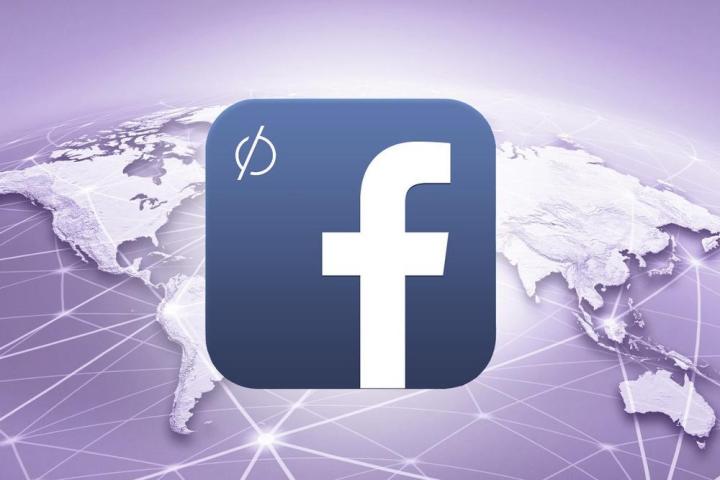
Not so, though, according to Facebook’s Mark Zuckerberg, for subscribers of Facebook’s free Internet service, Internet.org. Founded in 2013, Internet.org’s goals are much loftier than ad-supported providers of old. It hopes to offer free Internet service to the two-thirds of the world’s inhabitants who, because of poverty, location, or a general lack service availability, don’t have and can’t get Internet connectivity.
Is Internet.org truly an attempt at altruism, as Zuckerberg claims, or a scheme to bring less developed countries of the world Facebook?
What is Internet.org?
In his “Is Connectivity A Human Right?” white paper describing Facebook’s proposal for forming a free Internet service for the world’s poor, Zuckerberg calls online connectivity a “human right.” Sounding that charge—the knowledge economy for everybody!—Facebook invested some money and signed up a bunch of new partners, which include Samsung, Ericsson, MediaTek, Nokia, Opera and Qualcomm, and started Internet.org. Zuckerberg says Facebook invested a billion dollars, but TechCrunch.com and others say that most of that was spent procuring new Facebook customers.

In any case, since inception, Internet.org has launched its service, via a small app, in six countries: Zambia, Tanzania, Kenya, Colombia, Ghana, and India, with plans to adapt the app to another 94 countries by the end of 2015. In fact, since this initiative is mobile, requiring data plans in most areas to work, this really isn’t traditional Internet access service at all.
Instead of providing full access to the Internet as we know it, with access to millions of Web sites, the Internet.org app funnels it all down to a very small offering of content, starting with, of course, Facebook. The app also delivers access to the weather and a few other types of localized content—most provided over 2G and 3G cellular networks via inexpensive smartphones.
Understanding the utility of this is difficult for those of us used to broadband access, but in areas just gaining Internet access devices usually connect through slow mobile data connections. The Internet.org app provides a bandwidth-sipping portal that will function on these fledgling Internet services. Still, the real problem is getting it to people in underdeveloped countries where there really is no Internet, and that’s where Internet.org’s sponsors come in.
Expanding the Internet, but not on my dime
Zuckerburg says that Internet can be provided to new locales with all sorts of innovative developments in signal expansion, data compression, and even new forms of data transmission technology. Facebook, of course, won’t be doing the expensive R&D and transmitting signals to all these remote areas, but instead that will be accomplished by local Internet providers at their own expense.
Many of Facebook’s partners are not happy with this arrangement. Telecom providers Vodafone, Airtel, and Telenor, voiced much of the discontent at a March 2015 conference of the Mobile World Congress. According to the Times of India, several telcos expressed extreme discomfort with being asked to foot the cost of spectrum acquisition, cell tower reach expansion, and all the other aspects of providing free service over such expensive infrastructure.

Also according to the Times of India, the primary argument of the telcos was that Zuckerburg was mostly serving the interests of Facebook by providing free access over telecom networks. During his Mobile World Congress keynote, Zuckerberg said, “Our mission is to help people connect. This will help people stay close to their loved ones, and get access to services like health and education.” Of course, this goal also happens to put more people on Facebook, strengthening his business.
Vodafone chief Vittorio Colao has voiced his concern that Internet.org isn’t as selfless as it appears. “It is almost like Zuckerberg does philanthropy, but with my money,” Colao said. Currently, Internet.org in India has only 33 sites and services, consisting of Facebook, news, Wikipedia, and a few other knowledge sites, and so on—a good mix, but hardly representative of the Internet.
In any case, while it looks like Facebook may have the resources to adapt its app for another 94 countries by the end of this year, Internet.org might have trouble finding willing providers to spend the cumulative billions to extend cellular service to all of these underdeveloped areas.
Conveniently moral
Zuckerburg says that the telcos and other partners will benefit down the road by selling additional services, equipment, and data plans. That may be true, but in the meantime he is asking cash-strapped locales to spend a lot of money on infrastructure for accessing Facebook and a few other sites. Since the entire point is to reach new customers in underdeveloped poor areas, the question remains: do they have resources to spend enough to pay for all this new infrastructure?
Isn’t it convenient that Zuckerburg’s beliefs happen to align with his business plan?
He concludes his paper with the following statement: “I think that connecting the world will be one of the most important things we all do in our lifetimes, and I’m thankful every day to have the opportunity to work with all of you to make this a reality.”
Perhaps he does really, deeply believe that connecting the world to Facebook is a moral imperative. But isn’t it convenient that Zuckerburg’s beliefs just happen to align with a business plan that will bring Facebook to people who can’t yet access it?


